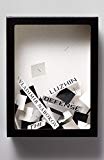
The plot concerns the title character, Aleksandr Ivanovich Luzhin. As a boy, he is considered unattractive, withdrawn, and an object of ridicule by his classmates. One day, when a guest comes to his father's party, he is asked whether he knows how to play chess. This encounter serves as his motivation to pick up chess. He skips school and visits his aunt's house to learn the basics. He quickly becomes a great player, enrolling in local competitions and rising in rank as a chess player. His talent is prodigious and he attains the level of a Grandmaster in less than ten years. For many years, he remains one of the top chess players in the world, but fails to become a world champion.
During one of the tournaments, at a resort, he meets a young girl, never named in the novel, whose interest he captures. They become romantically involved, and Luzhin eventually proposes to her.
Things turn for the worse when he is pitted against Turati, a grandmaster from Italy, in a competition to determine who would face the current world champion. Before and during the game, Luzhin has a mental breakdown, which climaxes when his carefully planned defense against Turati fails in the first moves, and the resulting game fails to produce a winner. When the game is suspended Luzhin wanders into the city in a state of complete detachment from reality.
He is returned home and brought to a rest home, where he eventually recovers. His doctor convinces Luzhin's fiancée that chess was the reason for his downfall, and all reminders of chess are removed from his environment.
Slowly however, chess begins to find its way back into his thoughts (aided by incidental occurrences, such as an old pocket chessboard found in a coat pocket, or an impractical chess game in a movie). Luzhin begins to see his life as a chess game, seeing repetitions of 'moves' that return his obsession with the game. He desperately tries to find the move that will defend him from losing his chess life-game, but feels the scenario growing closer and closer.
Eventually, after an encounter with his old chess mentor, Valentinov, Luzhin realizes that he must "abandon the game," as he puts it to his wife (who is desperately trying to communicate with him). He locks himself in the bathroom (his wife and several dinner guests banging on the door). He climbs out of a window, and it is implied he falls to his death, but the ending is deliberately vague. The last line of the (translated) novel reads: "The door was burst in. 'Aleksandr Ivanovich, Aleksandr Ivanovich,' roared several voices. But there was no Aleksandr Ivanovich."
Already have an account? Log In Now